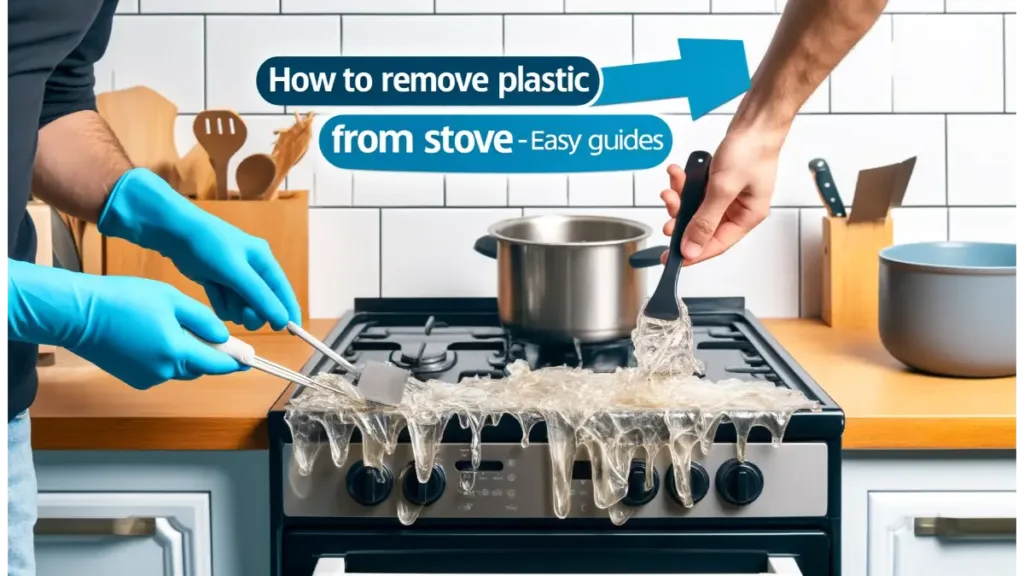Keeping your gas stove grates clean is not just a matter of kitchen aesthetics but a crucial aspect of maintaining your stove’s functionality and efficiency. Over time, stove grates accumulate grease, food particles, and other debris that can hinder their performance and potentially pose safety risks.

Regular cleaning ensures that your stove operates at its best, extends its lifespan, and remains a hygienic cornerstone in your culinary activities.
In this guide, we will explore seven effective cleaning methods tailored specifically for different types of stove grates. Whether you’re dealing with a quick daily wipe-down or a deep clean, these strategies will help you tackle everything from light dusting to stubborn, burnt-on food.
Understanding Your Stove Grates
Stove grates come in various materials, each requiring specific care to maintain their functionality and appearance. The most common types are cast iron, enamel, and stainless steel, each with unique properties and cleaning needs.
- Cast iron grates: These are durable and retain heat well but are prone to rust if not properly maintained.
- Enamel-coated grates: These offer a smooth surface that’s easier to clean but can chip if treated harshly.
- Stainless steel grates: These are resistant to rust and corrosion, making them easier to maintain, yet they can show water spots and fingerprints more readily.
Common challenges include grease buildup and burnt-on food, which not only affect the taste and healthiness of your cooking but can also become fire hazards if left unchecked. These issues require regular attention to ensure that your cooking surface is safe and effective.
Before diving into the cleaning process, it’s crucial to observe safety precautions. Ensure the stove and grates are completely cool before you begin to avoid burns. Use gloves when handling harsh chemicals or when scrubbing to protect your skin. To know about how to remove melted plastic from a Stove you can visit, https://stovemastery.com/how-to-remove-melted-plastic-from-stove/
What You’ll Needed
Cleaning stove grates regularly is important for maintaining kitchen hygiene and ensuring good functionality. Here’s a list of materials you’ll need to effectively clean your stove grates:
- Dish Soap – A degreasing dish soap will help break down cooking residue.
- Baking Soda – Useful for abrasive scrubbing and removing tough stains.
- Vinegar – Excellent for cutting through grease and disinfecting.

- Scrub Brush – A stiff-bristled brush can scrub away caked-on grime without damaging the grates.
- Old Toothbrush – Handy for getting into small crevices and corners.
- Scouring Pad – For more abrasive cleaning to tackle hardened food particles.
- Ammonia (optional) – Helps in deep cleaning, especially for removing burnt-on residue.
- Plastic Bags – Useful if you choose to use the ammonia method for soaking the grates.
- Rubber Gloves – To protect your hands from harsh chemicals and dirt.
- Microfiber Cloth – For drying and polishing the grates after washing.
- Paper Towels – Helpful for initial wiping and during the cleaning process.
These materials will assist you in keeping your stove grates clean and in top condition.
7 Effective Methods For Cleaning Gas Stove Grates
Daily Wipe-Down
Keeping your gas stove grates clean on a daily basis can prevent the build-up of grease and debris, making deeper cleaning sessions less frequent or intense.

- Materials Needed: Microfiber cloth or sponge, dish soap (optional).
- Process:
- After cooking and once the grates have cooled down, use a damp cloth or sponge to wipe away any loose particles and spills.
- For a bit more cleaning power, add a drop of dish soap to the cloth and gently scrub the grates.
- Rinse the cloth and go over the grates once more to remove any soap residue.
- Dry the grates thoroughly to prevent rusting.
Hot Water Soak
This method is great for loosening up grease that has hardened and is difficult to remove through wiping alone.

- Materials Needed: Large basin or sink, dish soap, hot water.
- Process:
- Remove the grates from your stove and place them in a basin or sink.
- Fill the basin with very hot water and a squirt of dish soap.
- Allow the grates to soak for 15 to 30 minutes.
- Use a non-abrasive brush or sponge to scrub the grates, focusing on areas with stubborn grime.
- Rinse with clean water and dry completely before replacing on the stove.
Vinegar and Baking Soda
This method uses household ingredients to create a natural cleaning solution effective against stubborn stains.

- Materials Needed: White vinegar, baking soda, soft brush or sponge, warm water.
- Process:
- Remove the grates and place them on a flat surface.
- Sprinkle baking soda generously over the grates.
- Pour white vinegar over the baking soda; it will fizz and help lift the grime.
- Let the mixture sit for at least 20 minutes.
- Scrub with a brush or sponge to remove residue.
- Rinse with warm water and dry thoroughly.
Ammonia for Tough Grease
Ammonia is highly effective for cutting through the toughest grease, but it should be used with caution due to its strong fumes.

- Materials Needed: Ammonia, large resealable plastic bag, gloves, safety goggles.
- Process:
- Place the grates in a large resealable plastic bag.
- Add about 1/4 cup of ammonia to the bag.
- Seal the bag tightly, ensuring there is some air left in the bag to allow the ammonia fumes to circulate.
- Leave the sealed bag outside or in a well-ventilated area overnight.
- The next day, open the bag outdoors (to avoid inhaling fumes), remove the grates, and rinse them thoroughly.
- Dry completely before placing them back on the stove.
Commercial Cleaners
For those who prefer a more straightforward approach without mixing solutions, commercial cleaners designed for stove grates can be very effective.

- Materials Needed: Commercial grate cleaner, gloves, sponge or brush.
- Process:
- Apply the cleaner according to the manufacturer’s instructions. Often, this involves spraying or coating the grates and letting it sit for a specified period.
- Scrub with a brush or sponge to remove loosened debris.
- Rinse thoroughly and dry.
Steam Cleaning
Steam cleaning is an eco-friendly way to dissolve dirt and grime without chemicals.

- Materials Needed: Steam cleaner with a brush attachment.
- Process:
- Fill the steam cleaner with water and allow it to heat up.
- Hold the steam cleaner close to the grates and use the brush attachment to scrub as you go.
- The steam will loosen the grime, making it easy to wipe away.
- Wipe the grates with a cloth and dry thoroughly.
Regular Maintenance
Maintaining a regular cleaning schedule can drastically reduce the need for heavy-duty cleaning.

- Materials Needed: Cloth, mild cleaning solution.
- Process:
- After each use, once the grates are cool, quickly wipe them down to remove any surface debris.
- Conduct a more thorough cleaning weekly with any of the above methods suitable for your stove type and level of buildup.
“A clean stove is a happy stove,” says home maintenance expert Jane Doe. Regularly cleaning your stove grates not only enhances their performance but also contributes to a safer cooking environment.
By employing these seven cleaning methods, you can ensure that your gas stove grates are always in top condition. Remember, a little effort goes a long way in kitchen maintenance.
Special Considerations and Tips
When cleaning your gas stove grates, avoiding common mistakes is crucial to prevent damage and ensure longevity. One frequent error is using overly abrasive scrubbers or harsh chemicals on enamel or stainless steel grates, which can scratch or erode the surface.
Similarly, soaking cast iron grates in water can lead to rust, undermining their durability. Instead, opt for gentler cleaning methods tailored to the material of your grates.
Regular maintenance not only keeps your stove looking great but also extends the life of the grates. By preventing the buildup of grease and burnt food, you reduce the wear and tear from harsh cleaning sessions.
Click here to learn: Why Chefs Prefer Gas Stoves
Implementing a routine cleaning schedule—such as a quick wipe after each use and a deeper clean weekly—can significantly enhance the longevity and performance of your stove grates.
How to Clean Greasy Gas Stove Grates | Effective and Effortless
Conclusion
Maintaining clean stove grates is essential not just for aesthetic reasons but for the functionality and safety of your cooking appliances. Regularly employing the cleaning methods outlined in this guide will ensure that your grates remain in optimal condition, contributing to efficient cooking and prolonging the life of your stove.
We encourage you to incorporate these routines into your kitchen cleaning practices. By doing so, you will achieve the best results and maintain your stove grates effectively. Remember, a little effort goes a long way in preserving the heart of your kitchen.




